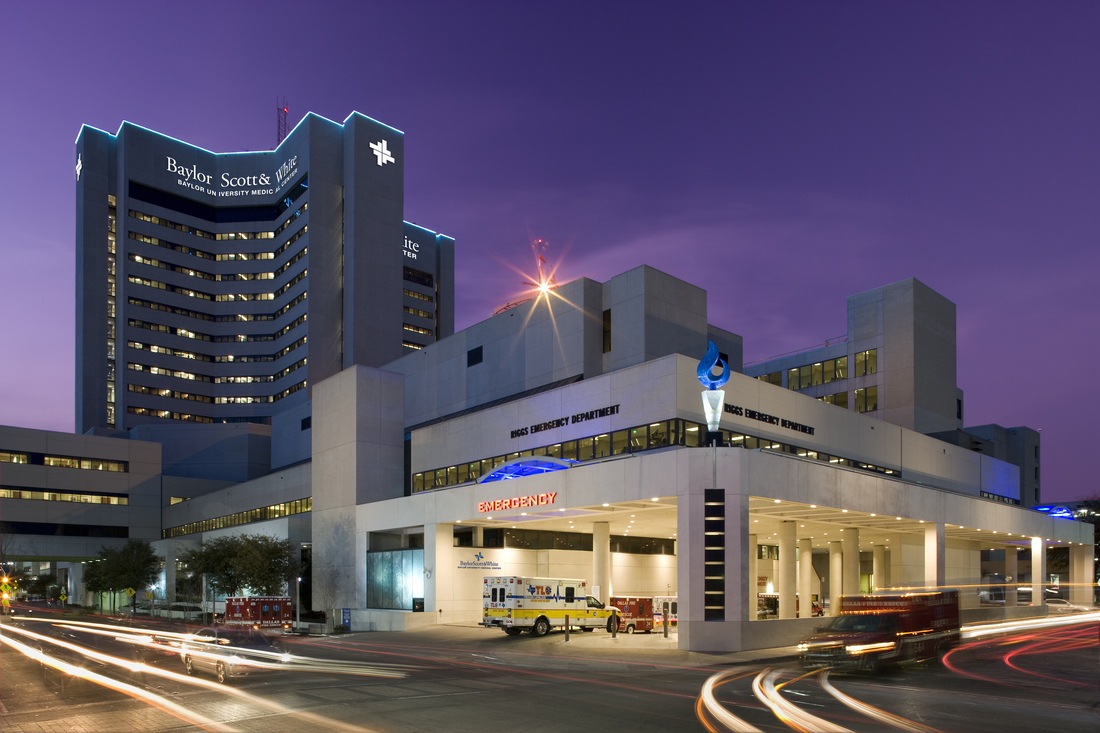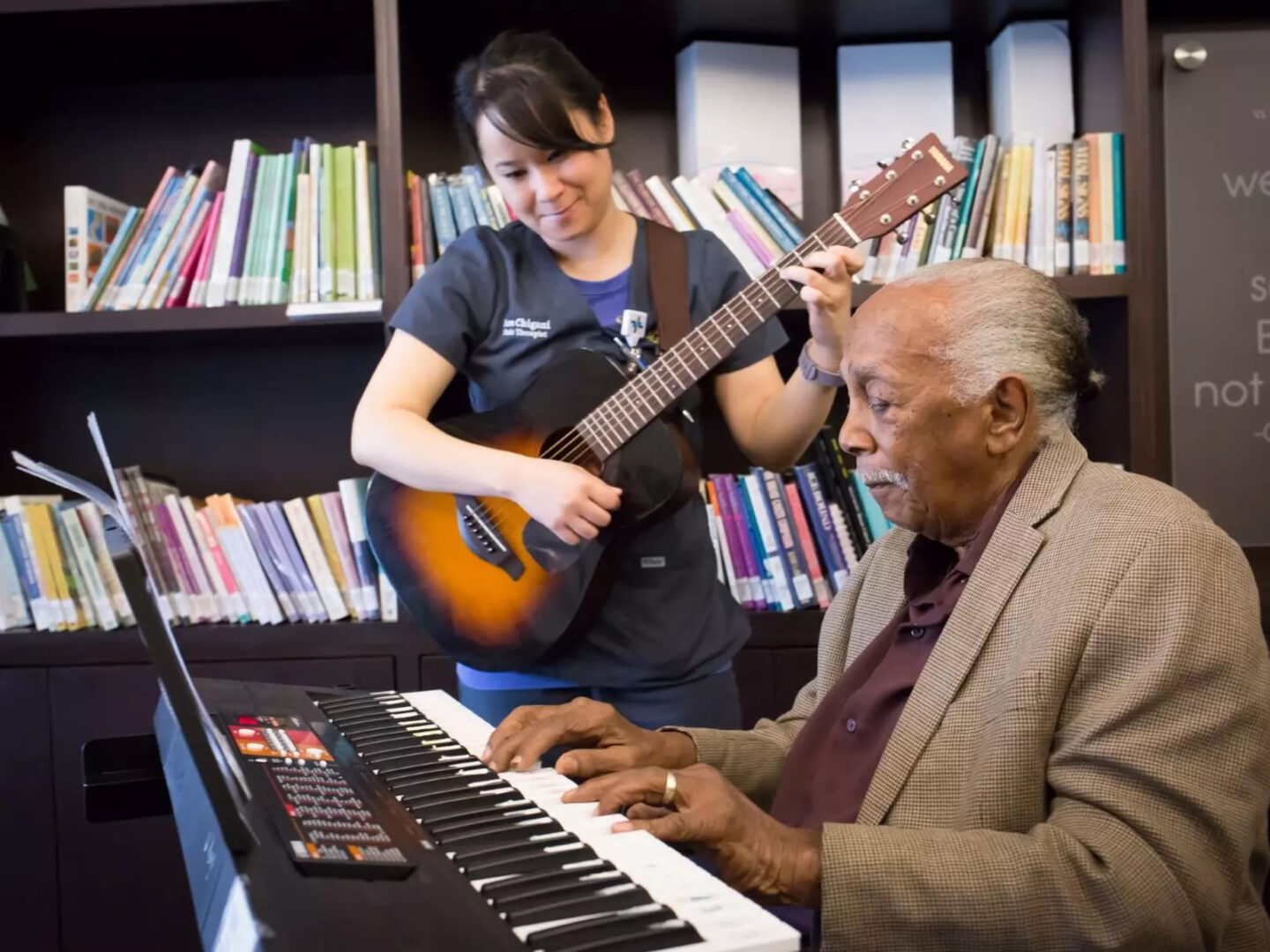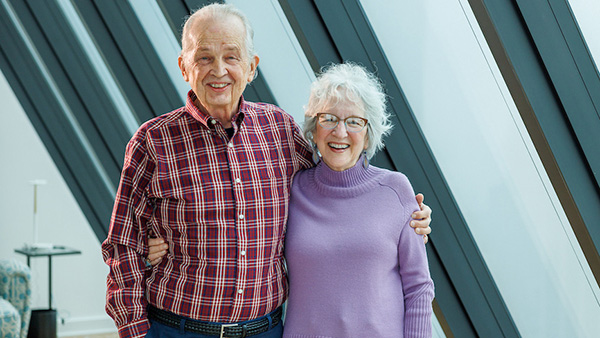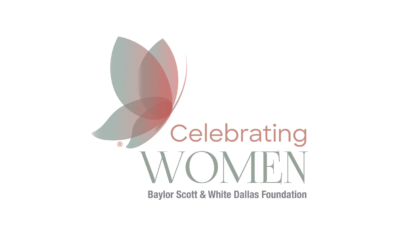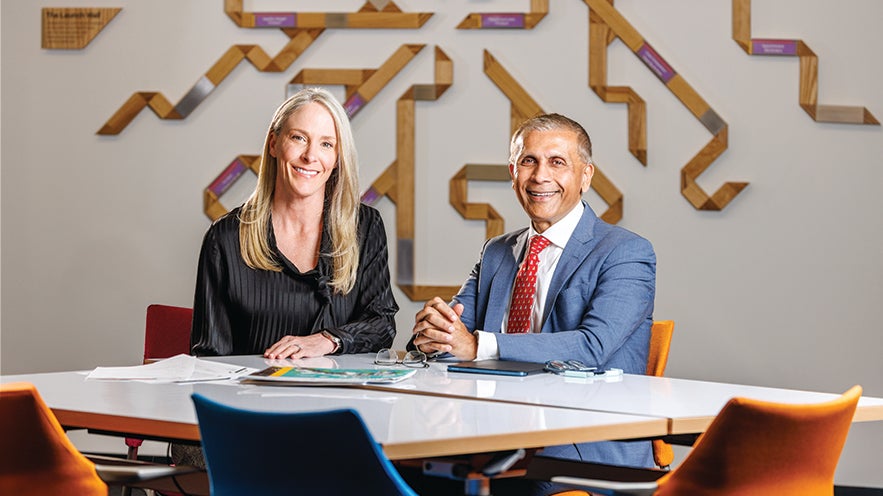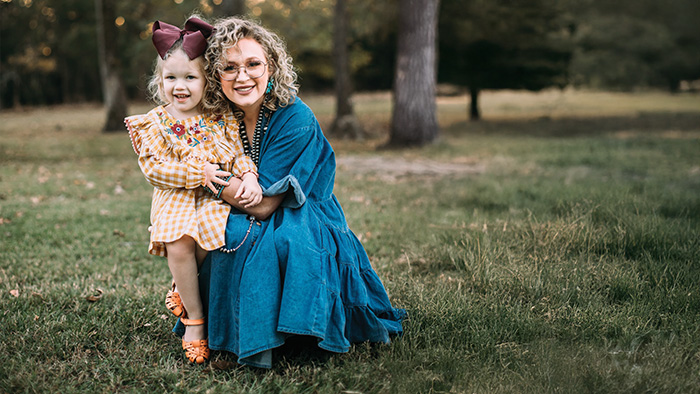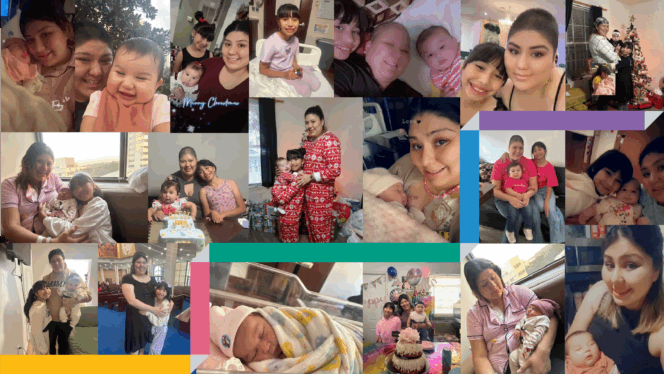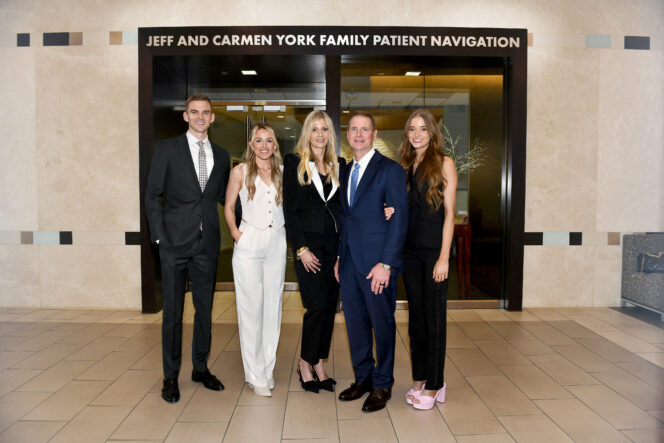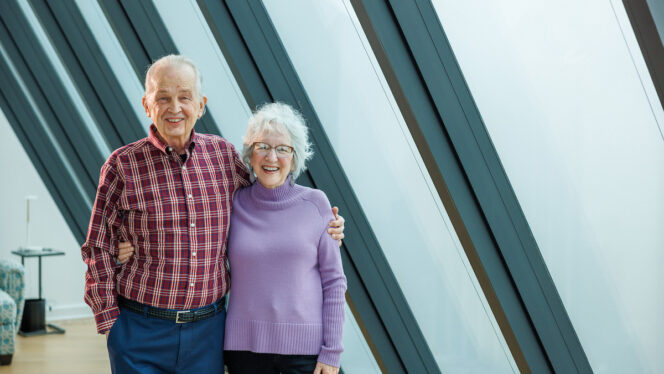Katie Looney’s life almost ended in an icy creek, but with lifesaving care and an ECMO program full of innovation and heart, she has survived and thrived.
It was January 13, 2021, the day after the first freeze, Katie Looney recalled. The then 24-year-old was driving to work in Mexia, ready to lead her class of second graders as their teacher when her life changed forever.
“Somebody pulled out in front of me,” Katie remembered. “When they did, I swerved to miss them. My car hit an electrical pole and flipped into a creek.”
Submerged in the frigid creek for 20 minutes, Katie drowned and her heart went into cardiac arrest. Rescuers pulled her from the badly damaged vehicle and she was taken to a hospital in Mexia and then Baylor Scott & White Medical Center – Temple, where she received lifesaving care. However, her lungs were badly damaged from the drowning.
To help Katie’s lungs heal, the critical care team in Temple put Katie on a machine to perform extracorporeal membrane oxygenation (ECMO). This process allows blood to be pumped out of the body to a heart-lung machine that removes carbon dioxide and sends oxygen-filled blood back into the body. Through ECMO, the blood bypasses the heart and lungs, allowing these organs to rest and heal.
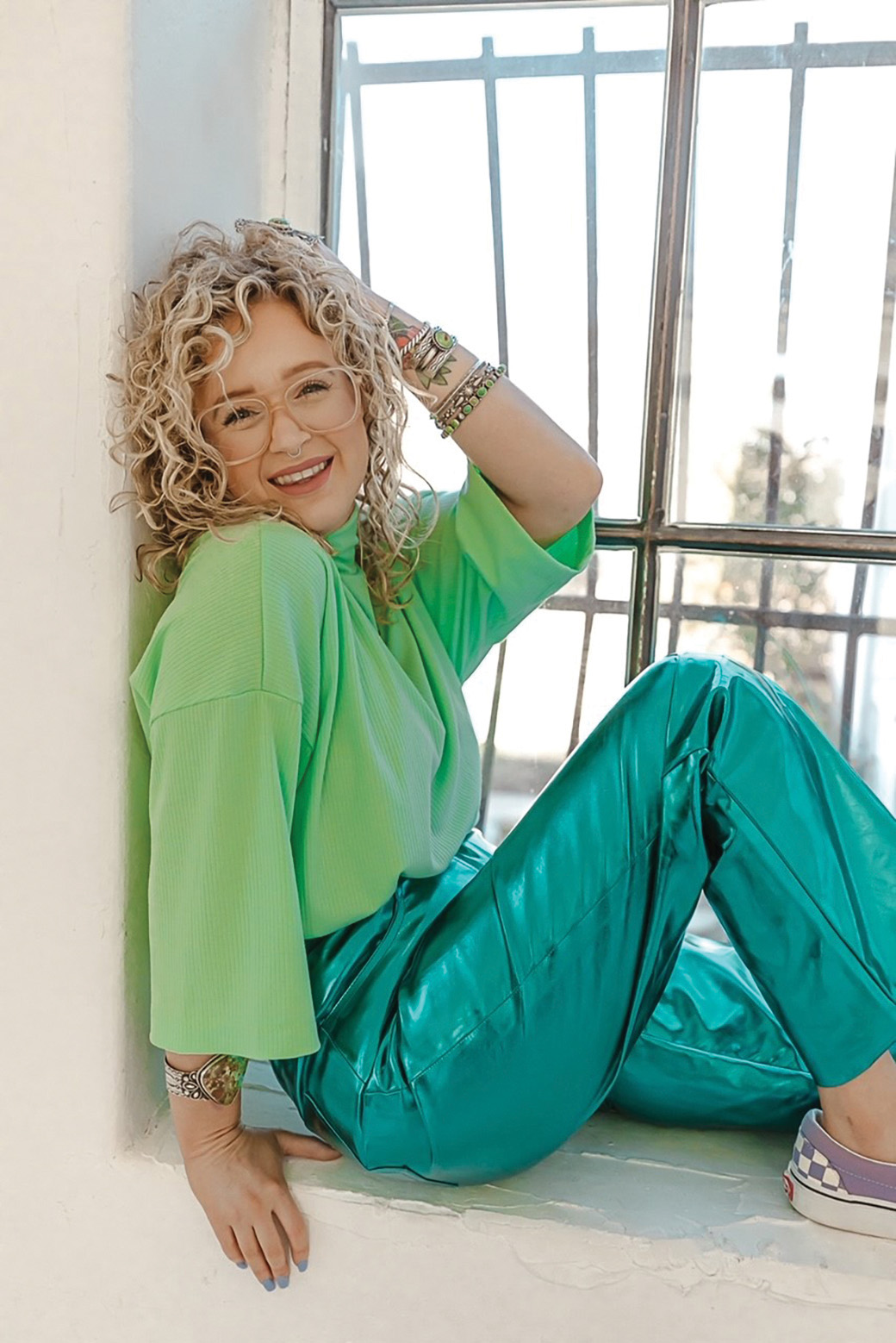
After 10 days on ECMO, Katie’s lungs were not improving. The decision was made to transfer her to Baylor University Medical Center, where she could be evaluated for a lung transplant, and which has one of the largest ECMO programs in Texas and highly trained, experienced staff. A delicate and well-coordinated transport was needed to get Katie from Temple to Dallas. Katie arrived to BUMC in a helicopter with members of the BUMC ECMO team by her side.
“It’s complex. This takes an incredible team,” said Gary Schwartz, MD, chief of thoracic surgery at BUMC and medical director of the ECMO program. The program comprises a wide range of experts, Dr. Schwartz explained: six nurses extensively trained in both critical care and ECMO, respiratory therapists, physical therapists, and art and music therapists. “We even have a dog team,”
Dr. Schwarz said of the wide-ranging therapeutic options available to ECMO patients at BUMC.
The BUMC ECMO program is recognized as a platinum-level Center of Excellence—one of only 12 in the US—by Extracorporeal Life Support Organization (ELSO), a nonprofit organization supporting healthcare professionals and scientists involved in ECMO. Treating 150–160 patients each year, the BUMC ECMO program is one of the highest-volume centers in the US and in the world, with outcomes that exceed international averages. The team continues to innovate by leading System-wide quality improvement programs and seeking new ways to get patients on ECMO safely and with even faster speed and coordination.
One of the many aspects of the ECMO program at BUMC that sets it apart from others is the integration of lifesaving care with therapy to begin to heal the patient’s whole body as quickly as possible. At other programs, patients on ECMO may be sedated until they can breathe on their own. The team at BUMC, however, wakes patients up as soon as they feel it’s safe so that the patient can begin doing therapy to rehabilitate their body.
Awake and on ECMO, Katie experienced a unique moment of hope courtesy of her dedicated care team.
“Once they started to wake me up, I was doing a little bit of rehabilitation. Bailey, my nurse, saw that they were getting me up. I wasn’t even her patient that day, but she ran into my room and got really close to my ear and said, ‘Hey, do you feel that? Do you feel your feet on the ground?’” The excitement was palpable, Katie remembered. Nurses and therapists were cheering her on, delighted at her progress.
“That was my first realization that I was in good hands and that I had people who loved and cared about me a lot,” Katie said. “That’s a great feeling when you’re going through something like that.”
Katie received care at BUMC for a total of 65 days—50 days on ECMO and 15 off ECMO and in rehabilitation to prepare for her departure. While 50 days is a long time for a patient to be on ECMO—most patients are on the machine a week or two—Katie’s lungs survived without needing a transplant, a goal her team had for her.
Today, Katie is back at work at an elementary school in Mexia, where she is a special education teacher, and feels blessed to be able to see her daughter Blayne grow up. “I’m thankful that I got another chance at life,” she said.
Dr. Schwarz credits successes like Katie’s to the incredible ECMO team at BUMC. “They’re as passionate as I am. They care about patients more than their own personal lives and schedules,” he said. “Caring for patients above all else is what sets this team apart.”
